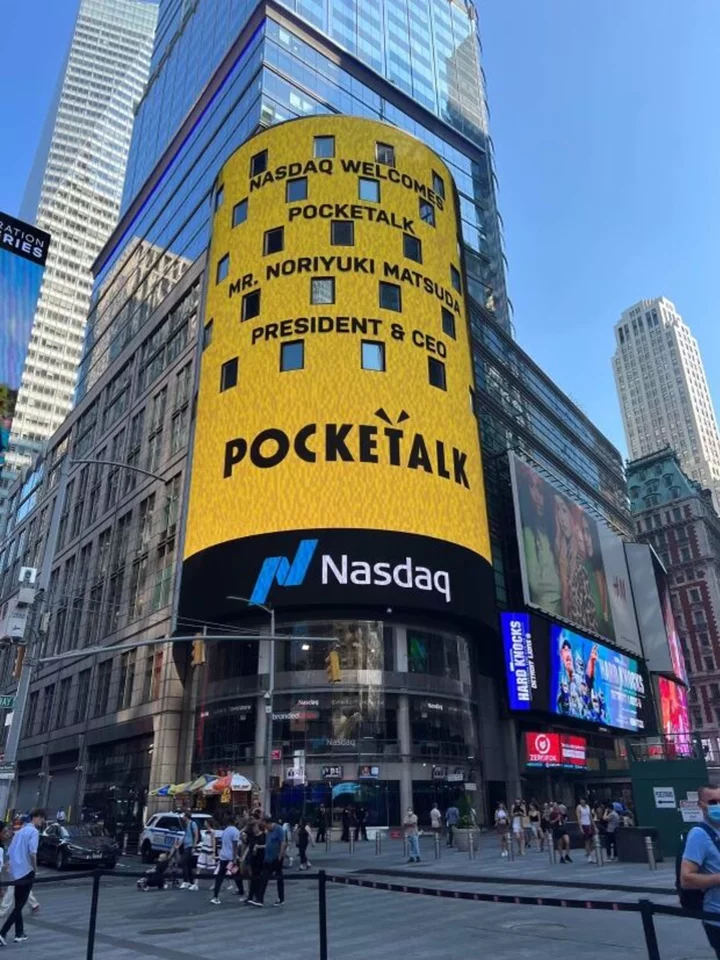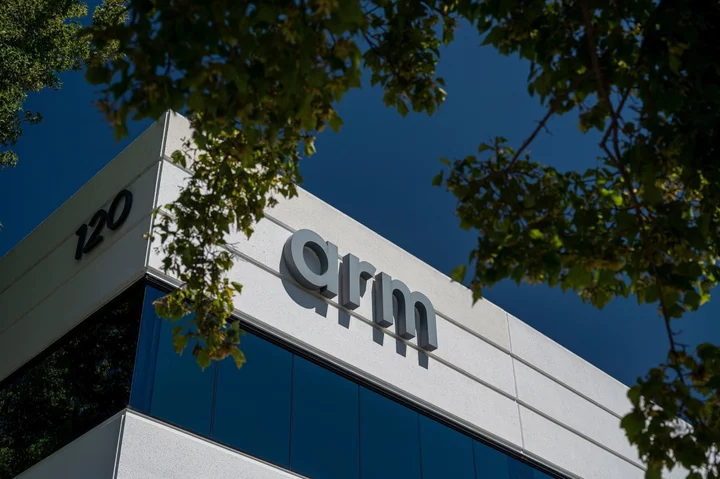Dozens of Japanese startups are preparing to list on Nasdaq in the next few years as an unprecedented number of entrepreneurs turn away from an aging, risk-averse home market.
Around seven Japanese companies are due to list on the exchange in the next several months, following five such listings since the start of the year, according to regulatory filings. About ten to 20 more plan to list next year, said bankers and entrepreneurs recently interviewed by Bloomberg. Only a handful of Japanese firms were traded on Nasdaq before a flurry of listings began this year.
The companies, ranging from software outsourcing companies to translation gadget makers, are attempting to go public at a time when US investors and bankers are seeking alternatives to Chinese IPOs, which have recently dwindled due to geopolitical tensions.
The move, at first glance, appears at odds with Japan’s reputation of lacking a vibrant venture capital culture, where investments in innovation have largely been confined to the R&D activities of large conglomerates. A dwindling population and an uncertain economic growth outlook have given further impetus to young entrepreneurs with innovative ideas seeking opportunities and capital abroad.
“Before, it was really for the big boys,” said Jesse Gillespie, a partner at law firm Morrison Foerster, which advises companies and underwriters on offerings in capital markets. “That’s opening up.”
Historically, Japanese listings in the US have primarily been by blue-chip firms like Toyota Motor Corp. aiming to secure access to global investors through dual listings. But many delisted their New York shares in recent decades as it became easier for foreigners to invest in Japanese stocks and the companies decided the costs outweighed the benefits. Years of slow economic growth in Japan further discouraged overseas listings.
The country’s retail investors, the primary target of new offerings in the country, are growing older, which means their risk appetite isn’t expanding. That’s one reason more entrepreneurs are seeking capital overseas, particularly in the US where institutional investors are more willing to bet on innovative yet unproven technologies, said market analysts and economists.
The founder and CEO of Syla Technologies Co., a real estate developer and crowd-funding service which listed on Nasdaq in March, said he found Japanese investors to be more cautious in estimating its value.
“When we asked Nasdaq and spoke with US institutional investors, the valuation was three times higher and the IPO size five times bigger,” said Hiroyuki Sugimoto. “There was no room for hesitation. We decided to give it a go in the US.”
Kaori Iwasaki, senior economist at the Japan Research Institute, said the trend was also helped by a changing corporate culture, with more young, talented workers choosing to join startups or start their own businesses rather than opt for lifetime employment at traditional blue chip companies.
“They know about the global market more than just the domestic market and are more open-minded to going global,” she said.
The shift has benefited the likes of Boustead Securities LLC, a boutique investment bank based in California, which signed its first Japanese client in 2021 and has since added nine more. In the meantime, business with Chinese clients has fallen.
“The fastest growth for sure - outside of the US - has come from Japan without a doubt,” says Keith Moore, founder and chief executive officer of Boustead. “The sheer number is pretty impressive.”
Boustead was the lead underwriter for Heartcore Enterprise Inc., a software outsourcing firm which listed on the Nasdaq last year. It also handled the IPO of Pixie Dust Technologies Inc., a developer of ultrasound technologies, earlier this year.
The number of Chinese IPOs on the Nasdaq fell to 25 this year from a record 74 companies in 2021 including primary share offerings, according to data compiled by Bloomberg. Some Chinese companies are headed to Europe instead for new listings.
“Advisory firms such as underwriters are now targeting Japanese firms,” said Yutaka Yuguchi, partner and head of Global Capital Market Advisory Group at KPMG in Tokyo, adding that unlike places such as Singapore where startups have long aimed to list on Nasdaq, Japan was still a relative “blue ocean market.”
Sumitaka Yamamoto, founder and CEO of Heartcore, said he had few startup role models to turn to when considering a Nasdaq listing. Someone warned him it would cost as much as $7 million, which turned out to be far more than what he actually needed: about $1.5 million.
“Nobody really knew how to do it,” said Yamamoto, whose book about listing his company on Nasdaq came out last year and became a best-seller. “Now it’s booming quite a bit.”
Japanese startups raised a record ¥945.9 billion ($6.4 billion) through funding rounds in 2022, according to Initial Enterprise which collects data on domestic startup funds. The figure stood at ¥142.8 billion in 2014. To make sure the momentum lasts, Prime Minister Fumio Kishida unveiled a ¥10 trillion package, vowing to create 100,000 new startups and 100 unicorns by 2027.
The Tokyo Stock Exchange, hoping to recapture business, has been working on luring more high-growth companies to its Growth Market section, according to Hiromi Yamaji, CEO of the bourse’s parent Japan Exchange Group.
Some critics, however, warn that the Japanese Nasdaq boom may be short lived and that it’s unclear whether the latest listings will lead to greater growth and eventual profitability.
“To be successful on the Nasdaq stock market, you need to have enough liquidity among professional institutional investors, so just being listed on the Nasdaq is meaningless,” said Tomotaka Goji, CEO of the University of Tokyo Edge Capital Partners, Japan’s best-performing university venture fund with more than ¥10 billion under management. He said some Japanese startups appear to be seeking a Nasdaq listing without a concrete growth plan.
Some industry executives are particularly cautious after Aerwins Technology Inc., a Japanese startup that manufactured Star Wars-inspired hoverbikes, became a going concern following the failure of its SPAC deal to list on Nasdaq.
But that’s not holding back Pocketalk Corp., a maker of a popular handheld translation device. The company is looking to debut on Nasdaq in two years at a valuation of $1 billion. IT outsourcing firm Josys Inc. said it too may consider a Nasdaq listing, depending on growth of its overseas sales.
Morrison Foerster’s Gillespie said this was an encouraging trend, even if it was too early to say whether any of the new listings will become a breakout success.
“It’s good to see Japanese companies be ambitious about raising capital internationally and establish a global investor base,” he said.
--With assistance from Julie Chien and Winnie Hsu.









